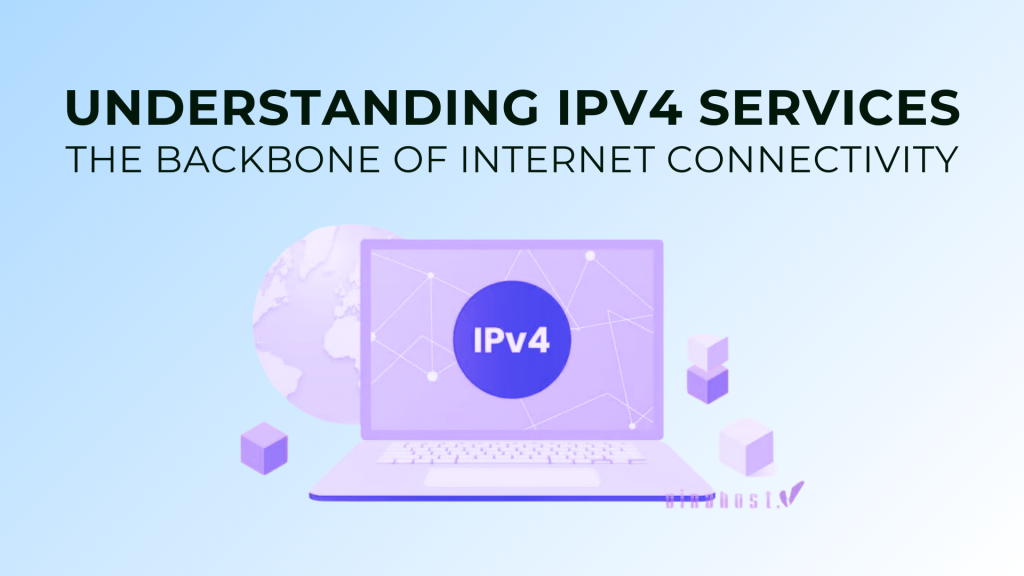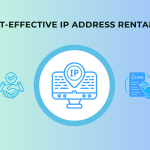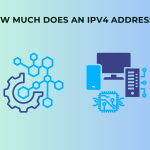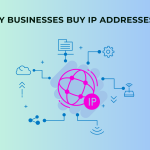In today’s digitally connected world, IPv4 services play a crucial role in enabling seamless communication between devices. With a large inventory, we offer competitive prices on a full range of IPv4 blocks from /24 to /16, making it easy to buy IPv4 addresses in any region around the world.
What is IPv4 Services?
IPv4, or Internet Protocol version 4, is the fourth version of the Internet Protocol and one of the core protocols of standards-based internetworking methods in the Internet and other packet-switched networks. It was the first version of the protocol to be widely deployed and forms the foundation for the Internet as we know it today.
IPv4 uses a 32-bit address scheme allowing for a total of approximately 4.3 billion unique addresses. These addresses are used to identify devices on a network and are crucial for directing data to its correct destination. Each device accessing the Internet is assigned a unique, numerical IP address, such as 192.0.2.1, which serves as an identifier on the network.
Understanding IPv4 Class of Service
The IPv4 address space is divided into five classes: A, B, C, D, and E. Each class is designed for different types of networks and uses:
- Class A: Supports very large networks with millions of hosts, used primarily by large organizations. The address range is from 0.0.0.0 to 127.255.255.255.
- Class B: Suitable for medium-sized networks, including universities and large businesses. The address range is from 128.0.0.0 to 191.255.255.255.
- Class C: Designed for smaller networks, such as small businesses. The address range is from 192.0.0.0 to 223.255.255.255.
- Class D: Reserved for multicast groups, used for broadcasting messages to multiple devices simultaneously.
- Class E: Reserved for experimental and research purposes, not intended for general use.
What is the Service Field in IPv4?
In the IPv4 Protocol, the header contains several fields, one of which is the “Type of Service (ToS)” field. This field is eight bits long and is used to specify the quality of service (QoS) desired for a particular packet. The ToS field includes parameters such as:
- Precedence: Prioritization of the packet for processing and delivery.
- Delay: Indication of whether low latency is preferred.
- Throughput: Preference for higher data transfer rates.
- Reliability: Emphasis on the accurate and reliable delivery of packets.
These parameters allow network devices to prioritize traffic and manage resources effectively, ensuring that critical data is transmitted with the appropriate level of service.
The Function of IPv4
IPv4 is fundamental to the operation of the Internet and plays several key roles, including:
- Addressing: Assigning unique addresses to devices on a network to facilitate identification and communication.
- Routing: Directing data packets between devices by determining the best path through the network.
- Fragmentation: Breaking down large data packets into smaller fragments to accommodate network constraints and ensure successful transmission.
Despite its widespread use, IPv4 faces limitations due to the exhaustion of available addresses. This has led to the development and deployment of IPv6, which provides a significantly larger address space. However, IPv4 remains an essential component of global networking infrastructure, and our services ensure that businesses and individuals can continue to obtain the IPv4 addresses they need to maintain robust connectivity.
By understanding the classes of service, the role of the service field, and the overall function of IPv4, businesses and individuals can make informed decisions when acquiring IPv4 addresses for their network needs. Whether you’re looking to expand your network or ensure reliable connectivity, our comprehensive range of IPv4 services offers the flexibility and scalability required for today’s digital landscape.






